The Program for International Energy Technologies (PIET) accelerates the development and commercialization of low-cost, clean, and efficient energy technologies worldwide. PIET has developed D-Lab and the Path to Zero Net Energy (PZNE) Initiative to engage students in finding solutions to energy issues in both developed and developing countries. D-Lab focuses on innovative technologies and business models that allow people at the “bottom of the pyramid” to save or earn more money. The PZNE Initiative, in partnership with the Facilities Management Energy Conservation Office, focuses on applied energy efficiency and renewable energy projects in the building and transportation sectors at UC Davis. With a focus on market-based energy solutions, multidisciplinary faculty and student teams work with clients to understand specific technical, social, environmental, and economic issues.
Key Accomplishments 2016
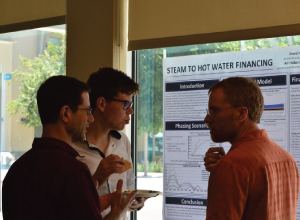
Completed Key Projects for Zero Net Energy Initiative
The PIET, in collaboration with the UC Davis Energy Conservation Office, developed a multidisciplinary course—A Path to Zero Net Energy: A Hands-on Approach—to educate and engage students on issues of energy use, demand, energy efficiency, renewable energy, and climate neutrality, as well as their associated technical, economic, social, and political challenges. Through lectures, field-trips, and hands-on projects, students understand the concepts behind zero net energy buildings and communities, and the associated climate and economic issues. In 2016, student teams worked on a variety of projects, including investigating financing and the potential energy savings if UC Davis switched to a hot water heating system, and evaluating the effectiveness of the Green Commuting Program at the UC Davis Sacramento Medical Center on commuting emissions reductions.
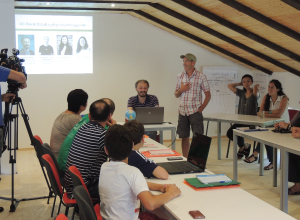
Received a Seed Grant to establish a D-Lab Satellite in Georgia
D-Lab, in collaboration with international partners, shares and disseminates curriculum and successful practices for project development with a focus on energy, climate, agriculture, and education. Through exploratory visits and short-term courses, D-Lab Satellites transfer capacity and promote project sustainability. In 2016, PIET received funding from the UC Davis College of Engineering, Global Affairs, College of Agricultural and Environmental Sciences, and Biological and Agricultural Engineering to work with the Georgian Institute for Public Affairs and the Bediani Regional Educational Center to establish a D-Lab Satellite project in Georgia. In the first phase of this project, the UC Davis D-Lab team delivered a 2-week training for rural farmers in Bediani, Georgia to build capacities around local governance and environmental protection. In the second phase of this project, team members held exploratory meetings with local stakeholders to understand local needs and identify future cooperative activities and short- and long-term collaboration mechanisms.
“The involvement of the UC Davis D-Lab in evaluating developed courses as a short term contribution was crucial. After the exploratory visit, we are starting to develop long-term cooperations between the two Universities. It will also introduce relevant educational, thematic curriculas essential for GIPA to modify and extend knowledge in the fields of Environmental Protection, Natural Resources Management, Rural and Agriculture Development.”
—Kakhaber Bakhtadze, Program Director, Georgia Institute of Public Affairs (GIPA)

Established a “Dry Chain” Working Group
In 2015, UC Davis and Mars, Incorporated launched the UC Davis Innovation Institute for Food and Health to seek solutions to global issues in food, agriculture, and health. In 2016, PIET, in partnership with Colorado State University, received Institute funding to develop a “dry chain” working group. This group is investigating strategies for low energy food drying and preservation with the goal of enhancing food security and energy savings.
Key Projects 2017
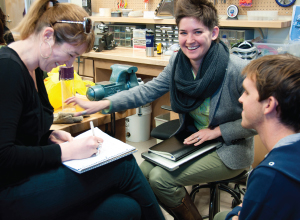
Continue Core Class A Path to Climate Neutrality: A Hands-on Approach
PIET, in collaboration with the UC Davis Energy Conservation Office, will continue to offer the class A Path to Climate Neutrality: A Hands-on Approach. Instructors provide a brief overview of energy use in the U.S. and the world, as well as current trends and innovations for Zero Net Energy in the commercial, residential, and transportation sectors. Students will engage in weekly participatory labs and lectures, listen to guest speakers, and make field trips, all designed to promote a further depth of understanding with regards to specific energy issues. Multidisciplinary student focus group teams will be formed, working for an actual client and projects that will inform on-going efforts on energy and climate issues. Teams will present their findings and recommendations to a review panel for feedback
“PIET, in collaboration with the UC Davis Energy Conservation Office, offers a unique multi-disciplinary course to educate and engage students in issues of energy use, demand, energy efficiency, renewable energy and climate neutrality, as well as their associated technical, economic, social, and political challenges.”
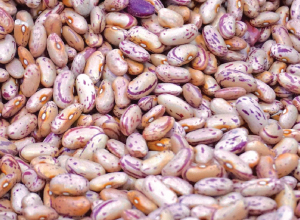
Investigate Strategies for Food Drying and Preservation
In 2017, PIET will continue its partnership with Colorado State University to investigate strategies for food drying and preservation with the goal of enhancing food security and energy savings. The working group will officially be launched in May when the UC Davis Innovation Institute for Food and Health holds its first conference focusing on high efficiency food processing.
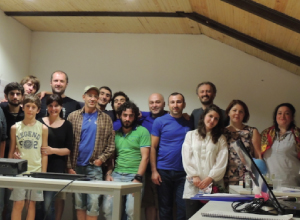
Advance Collaboration with D-Lab Satellite in Georgia
PIET will continue its work with Georgia to identify and implement key activities that build capacities around local governance and environmental protection. PIET received a seed grant from Global Affairs, the College of Agricultural and Environmental Sciences, and the College of Engineering to conduct a follow-up training with Tbilisi State University.
For more information, please visit the Program for International Energy Technologies.

